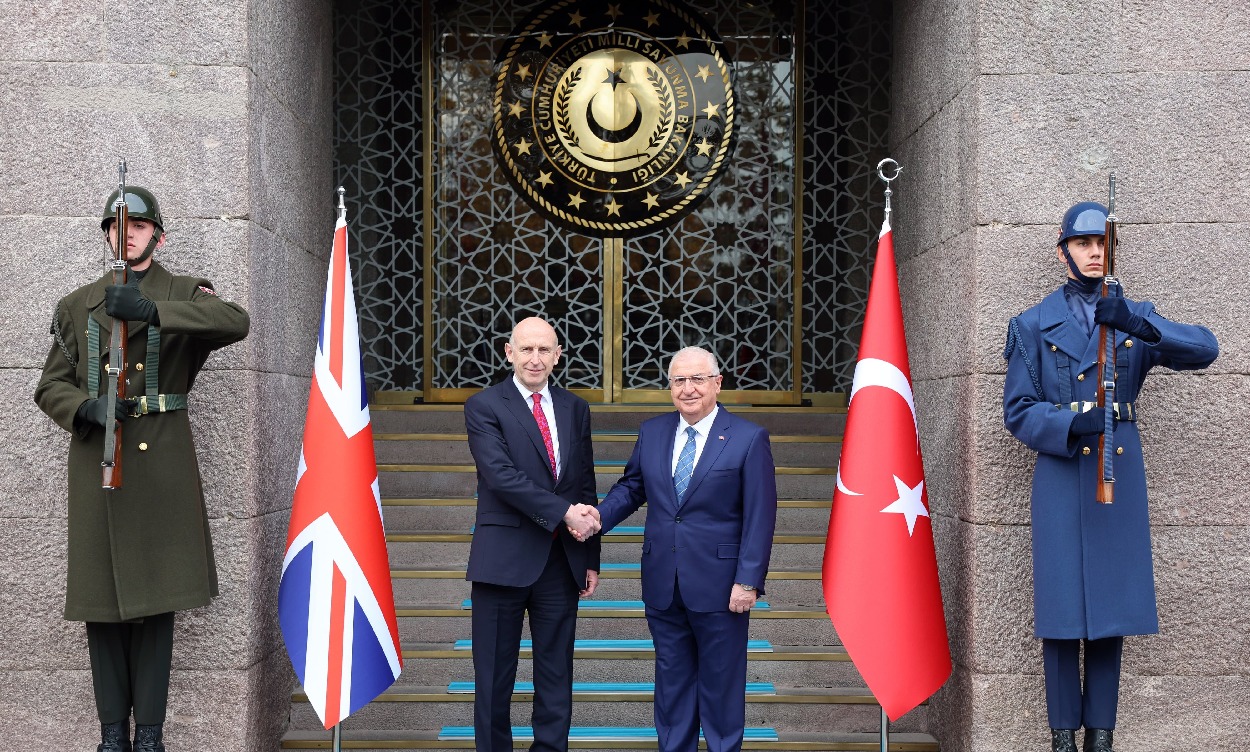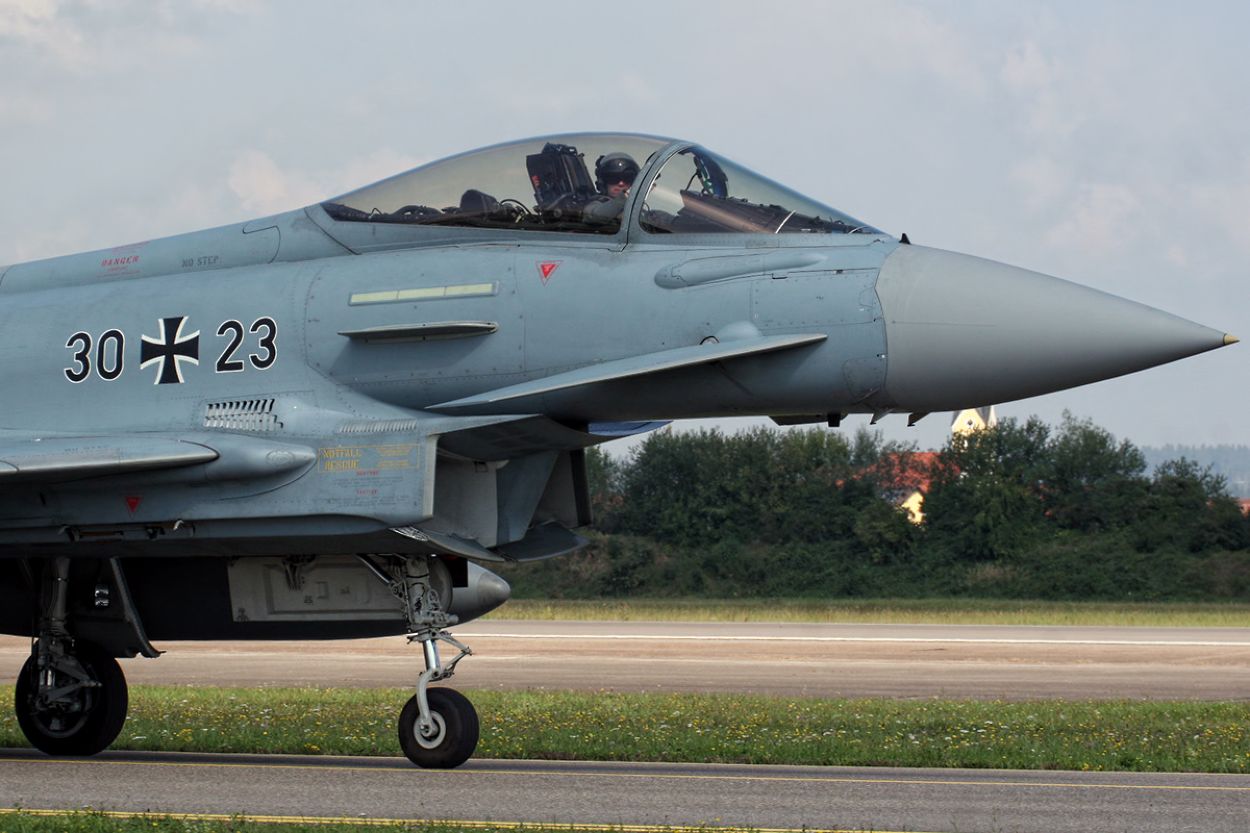A year after it first laid down plans to acquire 40 Eurofighter Typhoons, there are signs that Turkey is finally on the verge of acquiring the cutting-edge aircraft following a “positive response” from Germany.
Turkish Defense Minister Yaşar Güler first announced his country’s intention to buy the Eurofighter Typhoon produced by the European consortium of the United Kingdom, Germany, Italy, and Spain on November 16, 2023. Soon after, all members—except Germany—approved the sale of these advanced multi-role fighters to Ankara.
While Germany remained unwavering in its stance for over a year, there is an indication that the country is finally changing its mind and is poised to lift the ban on the sale of the aircraft.
Speaking during a televised interview on November 13, Turkish Defense Minister Yaşar Güler said: “We will acquire 40 Eurofighter Typhoon jets. Germany had been reluctant for a long time, but with the constructive contributions of our NATO allies Italy, the UK, and Spain, they finally gave a positive response.”
Additionally, citing an unnamed Turkish Defense Ministry source, Reuters reported on November 14 that Germany had directed its sales authority to work on the sale of Eurofighter Typhoon fighter jets to Turkey.
While asserting that a deal has not been signed, the source said, “Technical work is continuing regarding the procurement of the Eurofighter Typhoon jet, which can be an alternative to meet the operational needs of our Air Force.”
Incidentally, these reports came ahead of British Defense Secretary John Healey’s visit to Turkey on November 14, where he reportedly held closed-door meetings with his Turkish counterpart Yaşar Güler.
Andrew Hopkins, a senior correspondent with ‘TRT World,’ wrote on X: “British Defence Minister John Healey is in #Turkiye today to discuss the sale of 40 Eurofighter jets to Ankara, among other things. Turkish military sources have confirmed today that Germany has given its sales authority the go-ahead to work on the deal.”

The UK, for one, has been relentlessly exhorting Germany to lift the ban, which it argues would accelerate aircraft production and spur growth and employment.
Berlin suspended arms sales to Turkey in 2019 following a Turkish attack on the Kurdish YPG group in Syria. The two countries have a host of other disagreements, including Turkey’s human rights record and Ankara’s fierce criticism of Israel.
Notably, German Chancellor Olaf Scholz’s visit to Turkey last month fuelled optimism that further talks could lead to German authorization of weapons sales to Turkey. When reporters asked Scholz whether the aircraft deal would be on the agenda, he said, “Of course, we always discuss the supply of weapons to our NATO partner.”
Moreover, some reports in October 2024 stated Germany had approved a US$368 million weapons sale for Turkey, which included submarine torpedoes and anti-aircraft missiles. This, in turn, spurred hope that a deal for the purchase of Eurofighter Typhoon could also be on the horizon.
Meanwhile, reports in Turkish media stated that Germany authorized the sale of these jets to Turkey after changing its geopolitical view in light of two major wars—one in the Middle East and the other in Europe between Russia and Ukraine—that threaten regional and European security.
Germany has not officially confirmed these reports. The EurAsian Times has contacted the German Federal Ministry of Defence (BMVg) and is still awaiting a response.
Laser Weapons On Stryker AFV: U.S. Army Deploys DE M-SHORAD To Middle East To Counter UAV Threats
Turkey’s Aging Air Force Needs Revamp
Turkey’s interest in buying the Eurofighter Typhoon followed a protracted and drawn-out process to acquire F-16s from the United States, which was authorized earlier this year following Ankara’s ratification of Sweden’s NATO membership.
When Turkey first expressed its intention to buy the Eurofighter Typhoon, some analysts noted that the announcement might have been a ruse to give Ankara leverage in its negotiations for new American F-16s. However, after finally obtaining the approval for F-16s from the US, Turkey announced that it was formally pursuing the purchase of Typhoons.
The Turkish Air Force is currently dominated by aging F-16 fighter jets. The country was due to receive the stealthy F-35 Lightning II fighters from the United States. However, it was expelled from the F-35 consortium in 2019 when it decided to purchase S-400 air defense systems from Russia—a red line for Washington.
At the same time, Ankara’s primary regional adversary, Greece, acquired the 4.5th-generation Rafale and signed an agreement for the F-35 stealth fighter jet, widening the capability gap with Turkey. Though Turkey is developing its indigenous fifth-generation stealth aircraft, ‘KAAN,’ Ankara doesn’t expect to field it until the end of this decade. Hence, a capable 4.5th-generation fighter jet is required to fill the void.

In fact, experts think that modernizing its F-16 fleet and obtaining Eurofighters would bolster the nation’s air force as it develops its fifth-generation aircraft, the KAAN, particularly in the face of the challenge posed by the Hellenic Air Force.
Moreover, the Eurofighter Typhoon is a force to reckon with. It is a multirole, supersonic, canard delta wing, twin-engine European multinational fighter produced by a team comprising Airbus, BAE Systems, and Leonardo.
The Eurofighter features a delta-wing design, twin engines, and front swept-back canards. With thrust vectoring nozzles, the Typhoon’s aerodynamically unstable design allows for exceptional mobility. The Typhoon has two after-burning Eurojet-2000 engines and is available in single-seat and two-seat variants.
The fighter’s maximum takeoff weight is 23,500 kilograms, and its empty weight is 11,000 kilograms. It can operate in combat within a radius of 1388 kilometers and travel 3781 kilometers in a ferry.
The latest Tranche 4 versions of the Typhoon are equipped with an air-to-air and air-to-surface steerable Captor-E Active Electronically Scanned Array (AESA) radar. The aircraft can carry the Meteor missile, which can travel over 100 kilometers and perhaps as far as 150 kilometers.
- Contact the author at sakshi.tiwari9555 (at) gmail.com
- Follow EurAsian Times on Google News




